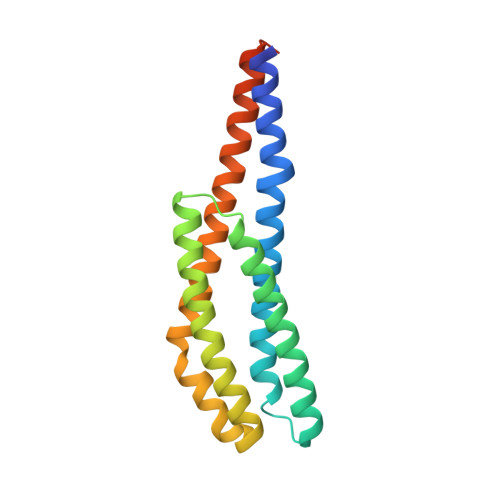D-amino acids signal a stress-dependent run-away response in Vibrio cholerae.
Irazoki, O., Ter Beek, J., Alvarez, L., Mateus, A., Colin, R., Typas, A., Savitski, M.M., Sourjik, V., Berntsson, R.P., Cava, F.(2023) Nat Microbiol 8: 1549-1560
- PubMed: 37365341
- DOI: https://doi.org/10.1038/s41564-023-01419-6
- Primary Citation of Related Structures:
8BSA, 8BSB - PubMed Abstract:
To explore favourable niches while avoiding threats, many bacteria use a chemotaxis navigation system. Despite decades of studies on chemotaxis, most signals and sensory proteins are still unknown. Many bacterial species release D-amino acids to the environment; however, their function remains largely unrecognized. Here we reveal that D-arginine and D-lysine are chemotactic repellent signals for the cholera pathogen Vibrio cholerae. These D-amino acids are sensed by a single chemoreceptor MCP DRK co-transcribed with the racemase enzyme that synthesizes them under the control of the stress-response sigma factor RpoS. Structural characterization of this chemoreceptor bound to either D-arginine or D-lysine allowed us to pinpoint the residues defining its specificity. Interestingly, the specificity for these D-amino acids appears to be restricted to those MCP DRK orthologues transcriptionally linked to the racemase. Our results suggest that D-amino acids can shape the biodiversity and structure of complex microbial communities under adverse conditions.
Organizational Affiliation:
The Laboratory for Molecular Infection Medicine Sweden (MIMS), Umeå Center for Microbial Research (UCMR), Science for Life Laboratory (SciLifeLab), Department of Molecular Biology, Umeå University, Umeå, Sweden.















